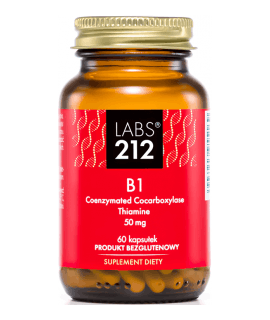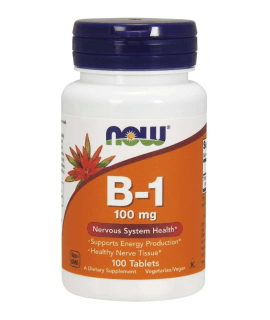Vitamin B1, also known as thiamine, is a part of a large group of B vitamins. Its essential role is to ensure the proper functioning of the nervous system. It also positively affects the wound healing process and is able to reduce pain. In extreme cases, its deficiency can lead to the disappearance of the myelin sheath in the motor nerves, which may result in paralysis of the peripheral nerves or muscular atrophy.
Hardly anyone knows that a common disease called the inflammation of nerve roots, whose symptoms are sharp pain in the lumbar spine, can by caused by the deficiency of vitamin B1. The vitamin helps to fight shingles, it relieves unpleasant symptoms of seasickness, stimulates the metabolism of fats, carbohydrates and amino acids. It also plays a role of a coenzyme for numerous important enzymes as well as it participates in energetic and neurophysiologic processes.
Thiamine deficiencies may occur among people who lead an active lifestyle, who are exposed to the mental and physical effort, but also among those who consume large quantities of coffee and tea (these drinks flush vitamin B1 from the body system). The demand for thiamine increases among older people and in those who are exposed to prolonged stress.
In certain situations, at high pace of life, it could be difficult to ensure an adequate level of vitamin B6 from food. That is why you should consider a supplementation with proven and safe products which will help you to achieve and maintain the proper level of this extremely important substance in our body system.








